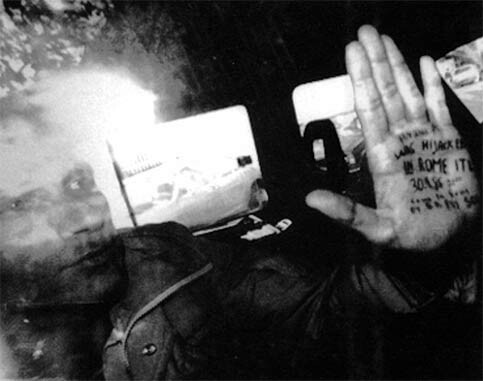The Association for Civil Rights in Israel 22 September 2004

The Association for Civil Rights in Israel submitted a petition this morning on behalf of Mordechai Vanunu, to demand the return of documents and letters confiscated from him before his release from jail.
ACRI submitted a petitioned this morning (22.9.04) against the prison warden of the Shikma Prison in Ashkelon and the Defense Ministry’s Chief of Security, to demand the return of the letters and documents that were confiscated from Vanunu before he was released from jail. The petition was submitted by ACRI’s Chief Legal Counsel, Attorney Dan Yakir, on behalf of Vanunu.
The petition refers to legal material and copies of letters that Vanunu wrote during his seventeen and a half years of imprisonment, of which he spent eleven and a half years in solitary confinement. During this long period of confinement, writing represented his only escape from isolation, the only means by which he could maintain his sanity, and his only basis for human contact outside the walls of the prison. During his long jail term he wrote a total of 2,543 letters that were sent all over the world with the permission of the prison management and the “security services”, who were personally responsible for censoring the letters. The appointed censors habitually blocked out words or whole sentences from Vanunu’s letters after which they authorized their mailing, not, however, before Vanunu was able to see the censored version. Vanunu kept copies of the original letters on which he marked the words and sentences that were removed for the mailed version. The original letters and legal material related to judicial proceedings initiated by Vanunu against the state during his prison term. The documents were in his possession for the entire period with the full knowledge and permission of the prison authorities until the eve of his release when they were taken from him. The prison warden promised Vanunu that the material would be checked and returned to him, but this never happened.
A day before his release, last April, Vanunu received a letter from the prison management informing him that some of the material that was taken from his cell constituted “prohibited items”, including classified information, and was therefore confiscated. Among the confiscated material were copies of letters and legal material that was in his possession. Notebooks in which the prisoner documented the information he was exposed to during his work at the nuclear research facility were also confiscated. The petition does not relate to these notebooks. During the legal proceedings regarding the imposing of post-release restrictions on Vanunu, he was given copies of some of the letters that he had written. It should be noted that it was actually information contained in these letters that was used by the state as a basis for its claim against Vanunu before the Supreme Court that he possessed classified information that he wished to expose.
Attorney Yakir claims in the petition that the orders of the Prisons Ordinance in the Israel Prison Services’ standing orders and regulations, which permit the infringement of prisoner’s basic rights, including the confiscation of items, are aimed only at preventing any danger to order and discipline in the prison, and in specific instances – to facilitate the rehabilitation of a prisoner and enable the effective management of the prison. The orders and regulations do not, it is claimed in the petition, include any authorization for confiscating items for reasons that are identified by the prison warden as reasons of “state security”. Likewise, there are no orders or regulations to authorize the prison warden to hand over confiscated objects to external bodies such as the Defense Ministry’s Chief of Security.
Attorney Yakir adds and explains in the petition that the material is not in any way prohibited, as it is, in part, legal material that was given to the prisoner by the prison authorities, and the remaining documentation is material that the prison authorities themselves allowed the prisoner to keep copies of. This is further reinforced by the fact that these letters have already been disseminated all over the world, after some of them had been heavily censored, and thus represent no danger to state security. The petition further states, therefore, that there is no justifiable reason not to return the letters to their author, at least in their censored versions (even though the petition points out that the authorities acted as over eager censors when it may not have even been necessary to censor at all). It is not clear, adds Attorney Yakir, how letters that have already been disseminated all over the world, with the authority of the security services, can represent a danger to state security.
The confiscation of items from Mordechai Vanunu, it states in the petition, represents a disproportionate violation, which has no explicit authority under the law, of freedom of expression and the right to ownership, a right to which prisoners are also entitled. This is a particularly severe infringement in the case of Vanunu as the type of ownership under discussion is of an especially sensitive nature as the letters were his only means of expressing his many moments of despair, and his rare moments of hope, that were his lot during his long years of imprisonment. In light of the aforementioned, Attorney Yakir emphasizes that the confiscation of Vanunu’s letters is a clear case in which, the infringement of the right to ownership, includes an infringement of the owner’s dignity and personality, as well as a violation of Vanunu’s right to freedom of thought. Just as he has the right to any thought, adds Yakir, he has the right to express those thoughts in writing. Thus, even if their publication is construed as an offense, committing thoughts to writing cannot convert the paper upon which they are written into a “prohibited item”.
Related Links